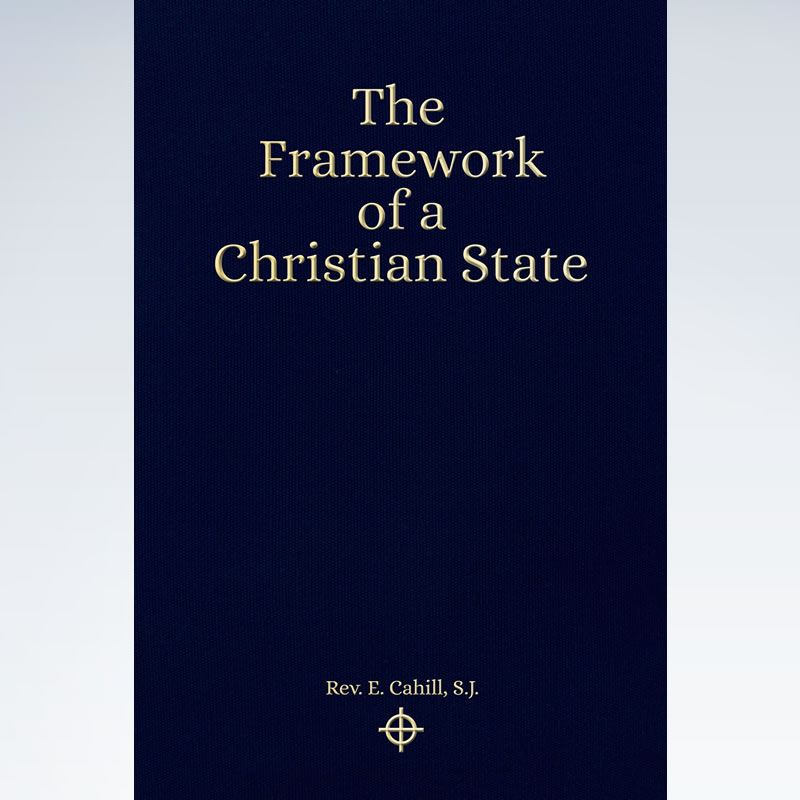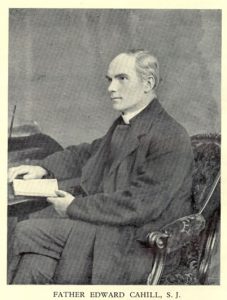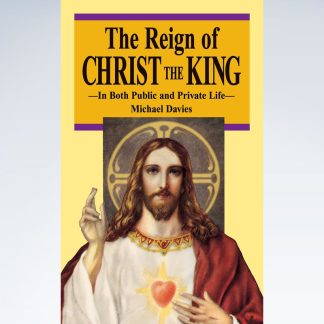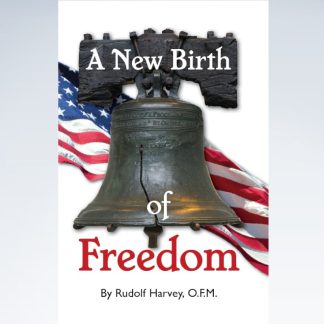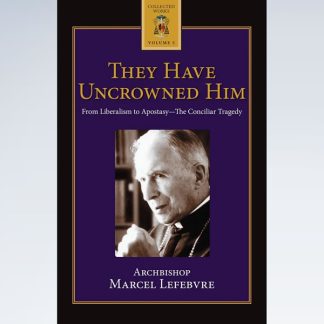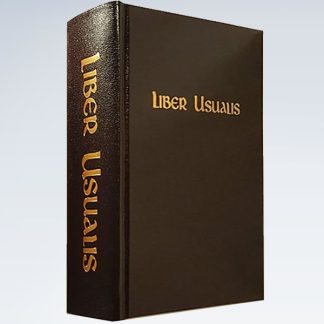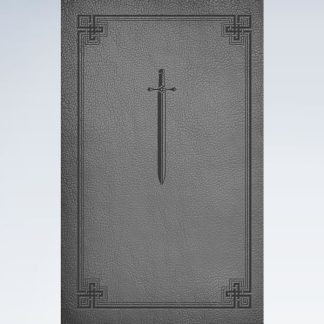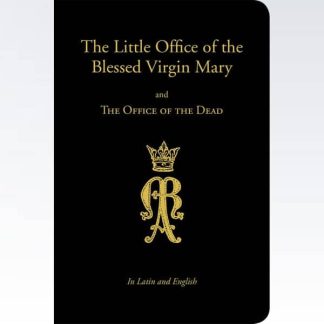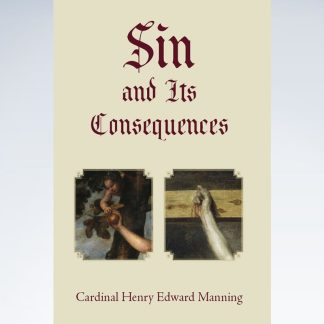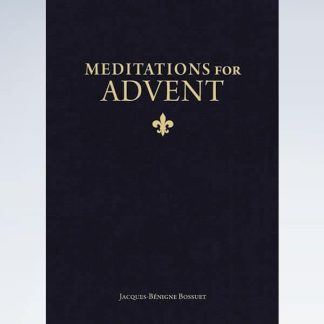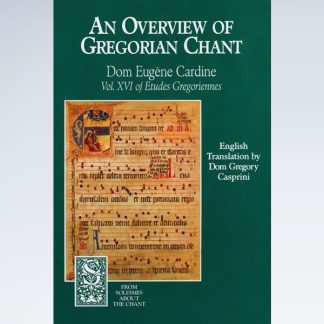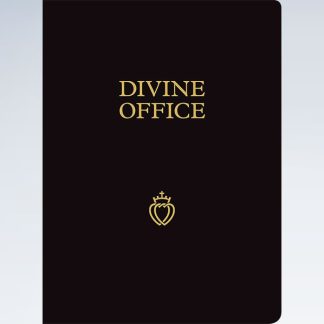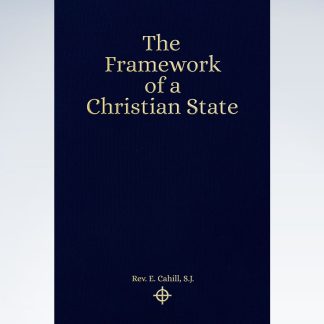The Framework of a Christian State: An Introduction to Social Science by Fr. Edward Cahill, S.J. — 1932 Nihil obstat and Imprimi potest. Hardcover, 704 pages. This book is intended primarily for students of Social Science who accept the Church’s teaching.
Its main purpose is to summarize and present in a consecutive and more or less scientific form the main elements of the teachings of the Roman Pontiffs (especially Leo XIII and our present Holy Father Pius XI), the Catholic Bishops and the standard Catholic authors on questions connected with social organization and public life.
When once men recognize, both in private and public life, that Christ is King, society will at last receive the great blessings of real liberty, well-ordered discipline, peace and harmony.” — Pius XI in the Encyclical on the Kingship of Jesus Christ.
The history of the modern world, since the French-Masonic Revolution, consists in the war to defend or to destroy the very ideals of Christian civilization. God’s plan for men is that all of their societal structures, especially the government of their nation-states should be imbued with Catholic principles, and that Christ would be officially recognized by the state as king and ruler of the nation, that all of the laws of each state, would not only protect the freedom of His Church to operate freely among men for their salvation, but that further, each state would pattern its laws and government according the the social principles laid out by the Church for the happiness and freedom of mankind.
But in the modern age, men have uncrowned Him as their King. This uncivilized age has cried out, like the Sanhedrin of old, “We will NOT have this Man rule over us.” Thus, we are now quickly regressing into a new and very dark age of barbarism (with modern technology and weapons!) such as the world has never seen before.
The Framework of a Christian State includes such topics as personal rights and duties, the privileges and position of the family in the social organism, the interrelations of capital and labor, the place of religion in public life, education, the functions of the State, its constitution, laws and administration, the due interrelations of its component parts with one another, its relations with the Church, etc.
Fr. Edward Cahill was an Irish Jesuit who founded “an Rioghacht”, a group of Catholics focused upon bringing the principles espoused in the papal encyclical Quas Primas (on the Kingship of Christ), to the modern world. This book is his masterpiece.
Framework of a Christian State
TABLE OF CONTENTS
Preface
Preliminary Chapter
PART I: HISTORICAL SKETCH
Introductory Note
CHAPTER I : Pagan Society in the Early Roman Empire
CHAPTER II: Christian Society in the Fifth Century
CHAPTER III: The Early Middle Ages
Art. I—General Historical Survey (5th to 11th centuries)
Art. 2 — Social Regeneration of the Barbarians
Art. 3 — Monasticism
Art. 4 — Abolition of Slavery
Art. 5 — Charity of the Church
CHAPTER IV: The Twelfth and Thirteenth Centuries – Historical Outline
CHAPTER V: Social and Political Principles of Christendom
CHAPTER VI: Medieval Economic Teaching
Art. 1 — Ownership of Goods
Art. 2 — The Just Price
Art. 3 — Usury
CHAPTER VII: Social Classes in Medieval Times
Art. 1 — The Feudal Nobility
Art. 2 — The Agricultural Class
Art. 3 — The Industrial Workers
CHAPTER VIII: Social Results of Protestantism
Art. 1 — Introductory
Art. 2 — Rise and Spread of Protestantism
Art. 3 — Direct Consequences of the Protestant Revolt
Art. A—Protestantism and Pauperism
Art. 5 — Protestantism and Morality
CHAPTER IX: Liberalism
Art. 1 — What is Liberalism
Art. 2 — Rationalism or Naturalism
Art. 3 — Political Liberalism
Art. 4 — Effects of Political Liberalism on Public Life
Art. 5 — Liberal Catholicism
Art. G—Economic Liberalism
Art. 7—Critique of Economic Liberalism
CHAPTER X: Individualistic Capitalism
Art. 1 — The Capitalist Regime and Individualistic Capitalism
Art. 2 — Rise and Growth of the Capitalist Economic Regime
Art. 3 — Rise of Individualistic Capitalism
Art. 4 — Principles Underlying Individualistic Capitalism
Art. 5 — Evil Results of Individualistic Capitalism
CHAPTER XI: Socialism
Art. 1 — Introduction
Art. 2 — idealistic Communism
Art. 3 — Nature of Socialism
Art. 3A-Historical Sketch of Socialism
Art. 4 — Non-Catholic Social Movements and Socialism
Art. 5 — Critique of Socialism
CHAPTER XII: Revolutionary Communism (Bolshevism)
Art. 1 — Historical Sketch
Art. 2 — Communist International Activities
Art. 3 The Soviet Governmental System
Art. 4 — The Soviet Internal Policy
CHAPTER XIII: Freemasonry and Allied Societies
Art. 1 — The Rise and Spread of Freemasonry
Art. 2 — Masonic Aims, Character and Policy
Art. 3 — Masonic Organisation
Art. 4 — Masonic Methods and Means
CHAPTER XIV: The Social Question
CHAPTER XV: The Catholic Social Movement
Art. 1 — Its Nature
Art. 2 — Historical Sketch
Art. 3 — The Catholic Organisations
PART II: CATHOLIC SOCIAL PRINCIPLES
Introductory Note
CHAPTER XVI: The Individual
Art. 1 — Human Personality
Art. 2 — Rights and Duties
Art. 3 — Duty of Religion
CHAPTER XVII: Duties and Rights Regarding One’s Self
Art. 1 — Duty and Right of Labour
Art. 2 — The Right to Acquire Property
Art. 3 — Christian Concept of Property Rights
Art. 4 — Right to Personal Freedom
CHAPTER XVIII: The Family
Art. 1 — General Principles
Art. 2 — The Family Homestead
CHAPTER XIX: Husband and Wife
Art. 1 — The Marriage Contract
Art. 2 — Non-Christian Attitude Towards Marriage
CHAPTER XX: Parents and Children — Education
Art. 1 — Introduction
Art. 2 — Functions of Parents in Education
Art. 3 — The Church’s Function in Education
Art. 4 — Functions of the State in Education
Art. 5 — The Moral and Religious Elements in the Schools
Art. 6 — Some Further Points Regarding Christian Education
CHAPTER XXI: Master and Servant (Employer and Employed)
Art. 1 — General Principles
Art. 2 — The Modern Labour Problem
Art. 3 — Duties and Rights of Employers and Employed
Art. 4 — Implications of an Equitable Wage Contract
Art. 5 — Further Means to be Employed in Solving the Labour Problem
Art. G—Industrial Associations
CHAPTER XXII: The Social Status of Women
Art. 1 — Sphere of the Two Sexes in the Social Organism
Art. 2 — The Social Status of Women in Historical Times
Art. 3 — The Feminist Movement
Art. 4 — Some Social Aspects of Feminism
CHAPTER XXIII: The State
Art. 1 — Nature of the State
Art. 2 — Origin of the State
Art. 3 — Functions of the State
Art. 4 — Functions of the State Regarding Religion and Morals
Art. 5 — The Constituent Parts and Organisation of the State
Art. 6 — The Central Authority in the State
CHAPTER XXIV: Justice
Art. 1 — The Nature of Justice
Art. 2 — Commutative Justice
CHAPTER XXV: Legal Justice
Art. 1 — General Principles
Art. 2 — Obligations of Legal Justice
Art. 3 — Duties Regarding the People’s Material Well-being
CHAPTER XXVI: Distributive Justice
Art. 1 — General Principles
Art. 2 — Taxes
Art. 3 — Taxing of Land Values
Art. 4 — Appointment to Public Offices
CHAPTER XXVII: Charity
Art. 1 — Nature and Motives of the Virtue of Charity
Art. 2 — The Precept of Almsgiving
Art. 3 — The Church’s Practice and Discipline
Art. 4 — Practical Application of the Church’s Teaching
CHAPTER XXVIII: Patriotism
Art. 1 — Introductory
Art. 2 — Virtue of Patriotism
Art. 3 — Patriotism and the Christian Law
Art. 4 — Duties of Patriotism
CHAPTER XXIX: The Church
Art. 1 — Prerogatives of the Church
Art. 2 — Relations Between Church and State
Art. 3 — The Church and Social Well-being
Art. 4 — The Priest and Social Action
APPENDICES
APPENDIX I: Social Life in Medieval Ireland
APPENDIX II: Historical Background of the Social Question in Ireland
APPENDIX III: Social Question in Ireland
Index
Within the “Framework of a Christian State” will be found suggestions borrowed mostly from approved Catholic writers, as to practical means of realizing Christian principles and ideals in social and civic organization.

